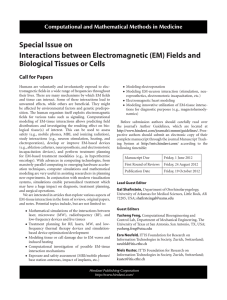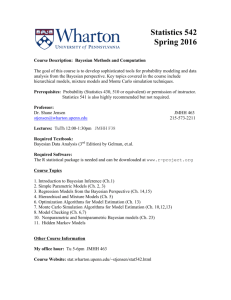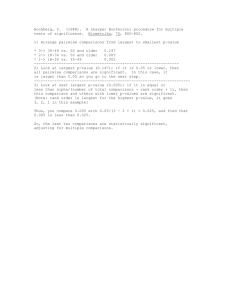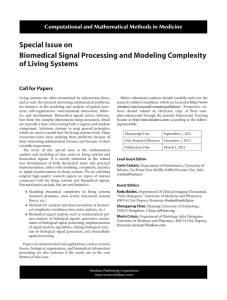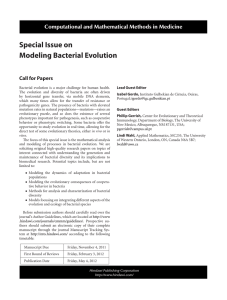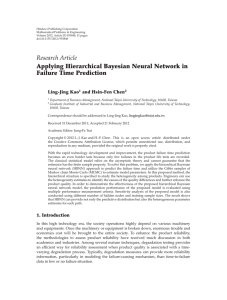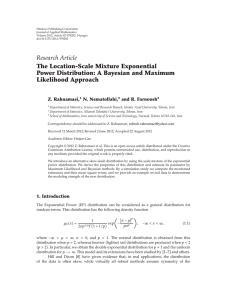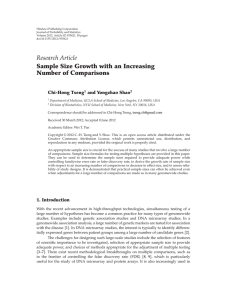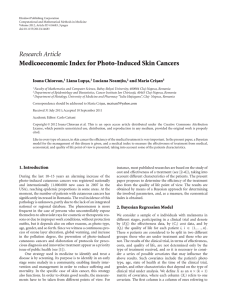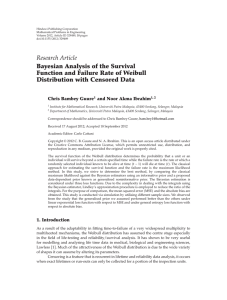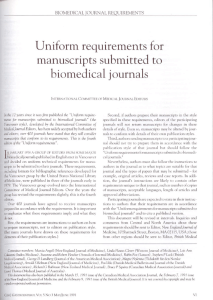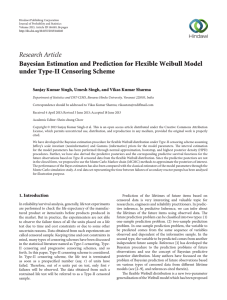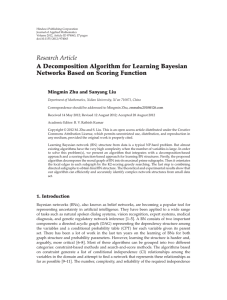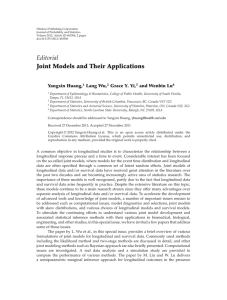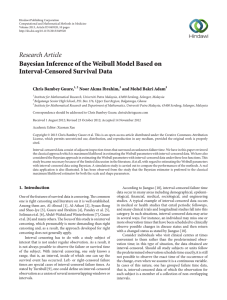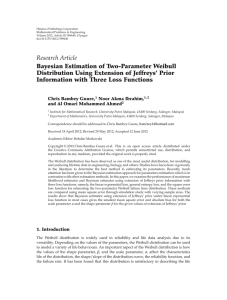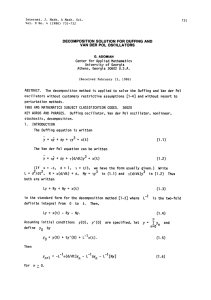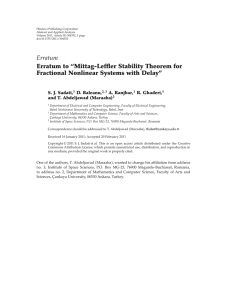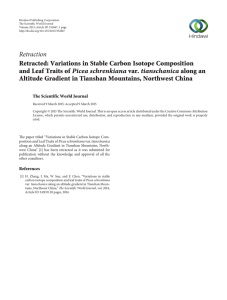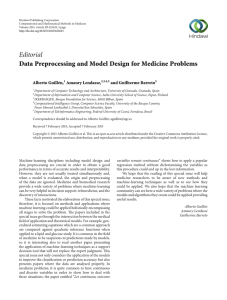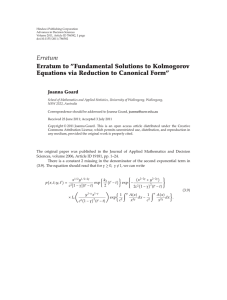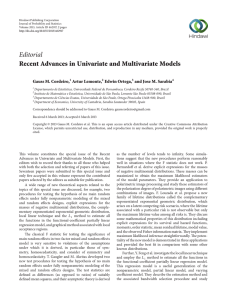Special Issue on Alternatives to Multiple Comparisons Journal of Probability and Statistics
advertisement
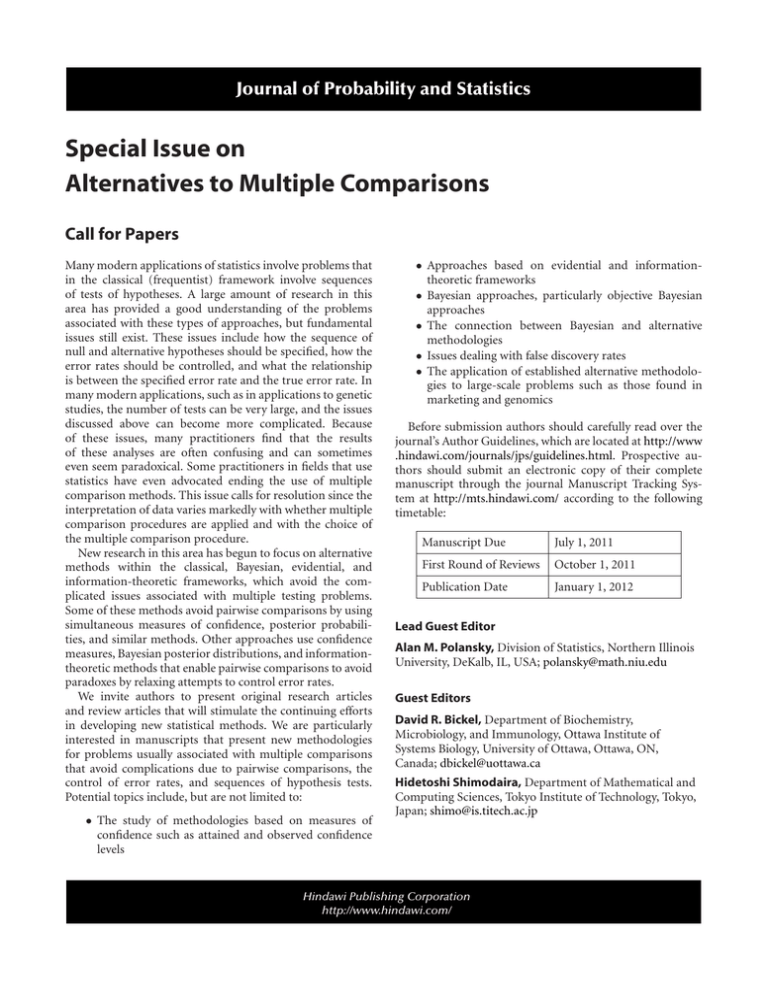
Journal of Probability and Statistics Special Issue on Alternatives to Multiple Comparisons Call for Papers Many modern applications of statistics involve problems that in the classical (frequentist) framework involve sequences of tests of hypotheses. A large amount of research in this area has provided a good understanding of the problems associated with these types of approaches, but fundamental issues still exist. These issues include how the sequence of null and alternative hypotheses should be specified, how the error rates should be controlled, and what the relationship is between the specified error rate and the true error rate. In many modern applications, such as in applications to genetic studies, the number of tests can be very large, and the issues discussed above can become more complicated. Because of these issues, many practitioners find that the results of these analyses are often confusing and can sometimes even seem paradoxical. Some practitioners in fields that use statistics have even advocated ending the use of multiple comparison methods. This issue calls for resolution since the interpretation of data varies markedly with whether multiple comparison procedures are applied and with the choice of the multiple comparison procedure. New research in this area has begun to focus on alternative methods within the classical, Bayesian, evidential, and information-theoretic frameworks, which avoid the complicated issues associated with multiple testing problems. Some of these methods avoid pairwise comparisons by using simultaneous measures of confidence, posterior probabilities, and similar methods. Other approaches use confidence measures, Bayesian posterior distributions, and informationtheoretic methods that enable pairwise comparisons to avoid paradoxes by relaxing attempts to control error rates. We invite authors to present original research articles and review articles that will stimulate the continuing efforts in developing new statistical methods. We are particularly interested in manuscripts that present new methodologies for problems usually associated with multiple comparisons that avoid complications due to pairwise comparisons, the control of error rates, and sequences of hypothesis tests. Potential topics include, but are not limited to: • The study of methodologies based on measures of • Approaches based on evidential and information- theoretic frameworks • Bayesian approaches, particularly objective Bayesian approaches • The connection between Bayesian and alternative methodologies • Issues dealing with false discovery rates • The application of established alternative methodolo- gies to large-scale problems such as those found in marketing and genomics Before submission authors should carefully read over the journal’s Author Guidelines, which are located at http://www .hindawi.com/journals/jps/guidelines.html. Prospective authors should submit an electronic copy of their complete manuscript through the journal Manuscript Tracking System at http://mts.hindawi.com/ according to the following timetable: Manuscript Due July 1, 2011 First Round of Reviews October 1, 2011 Publication Date January 1, 2012 Lead Guest Editor Alan M. Polansky, Division of Statistics, Northern Illinois University, DeKalb, IL, USA; polansky@math.niu.edu Guest Editors David R. Bickel, Department of Biochemistry, Microbiology, and Immunology, Ottawa Institute of Systems Biology, University of Ottawa, Ottawa, ON, Canada; dbickel@uottawa.ca Hidetoshi Shimodaira, Department of Mathematical and Computing Sciences, Tokyo Institute of Technology, Tokyo, Japan; shimo@is.titech.ac.jp confidence such as attained and observed confidence levels Hindawi Publishing Corporation http://www.hindawi.com/
